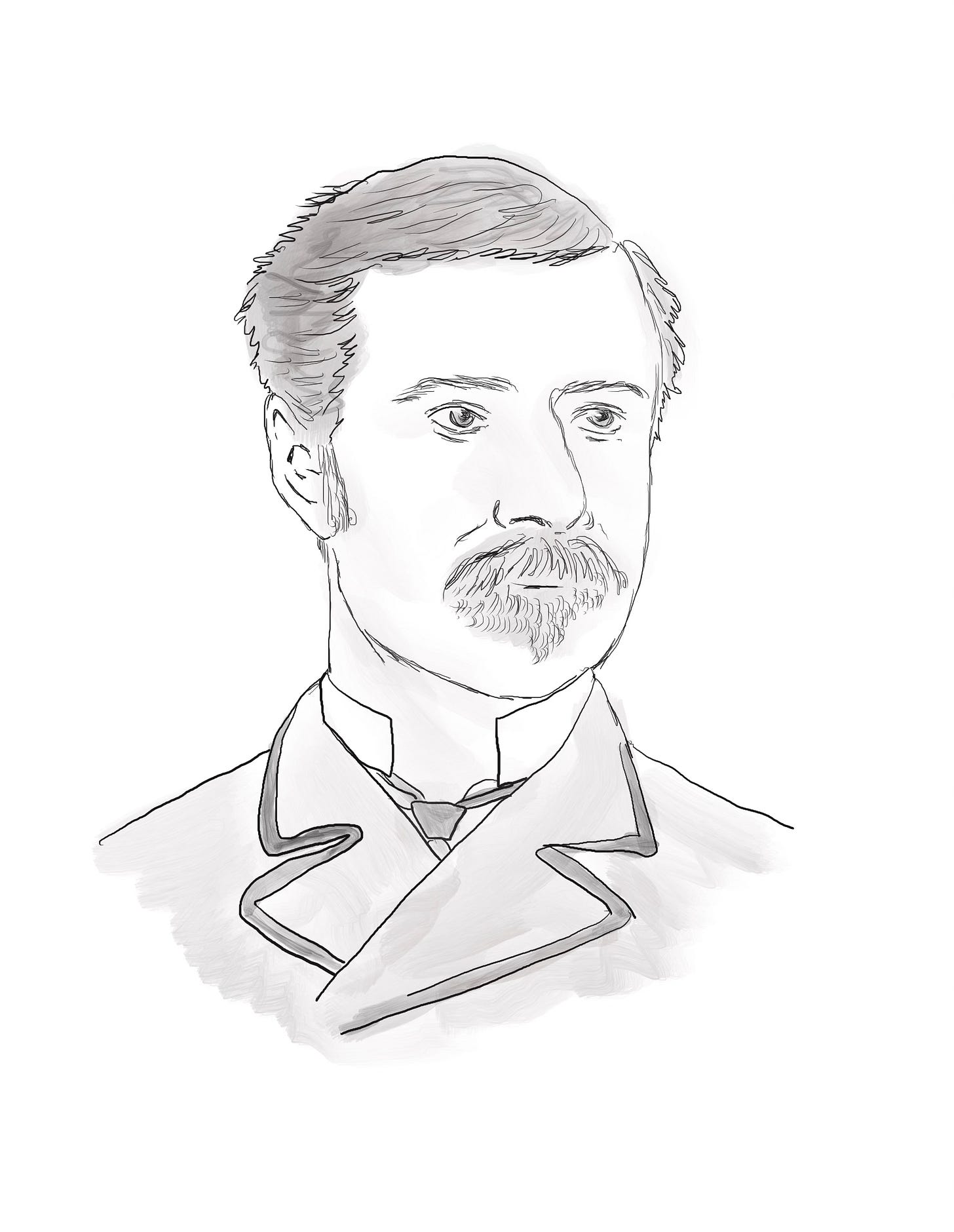A sleuthing success story
Detective agency JG Littlechild & Co, based off London's Regent Street, was run by a former Chief Inspector with an impressive track history
Over the next three weeks, I'm looking at another Metropolitan police detective who retired from the force and established himself as a successful private detective. For a period of nearly three decades, from around 1896 until 1923, Messrs JG Littlechild and Company was a successful detective agency based at 16 Great Marlborough Street in London. Its success only ended with the death of its founder - John George Littlechild.
JG Littlechild: my sketch, based on an 1880s press illustration of him
Littlechild was from the Hertfordshire/Cambridgeshire borders, born in Bassingbourne, near Royston, in 1848. He was the son of a blacksmith, after whom he was named, and he spent his childhood in Bassingbourne and then Wisbech. His mother died when he was ten years old, and his older sister, Hester, appears to have taken on the role of looking after her younger siblings. At the age of 12, John had his first brush with the law, but as a victim, when he had his overcoat stolen by Thomas Tuddenham, a boy at his school. Tuddenham was charged with the theft and sentenced to a week in prison.
Perhaps seeing the law in action gave him an idea as to what he wanted to do as a career. In 1867, aged 19, he joined the Metropolitan Police, and the 1871 census records him being based at Horseferry Road in Westminster. He worked his way up the ranks, from detective officer to inspector and then, finally, Chief Inspector in the CID. Having married in 1870, he and his family lived at Clapham while he worked in central London. Although he and his wife Susan had eight children, three - two boys and a girl - died soon after birth; however, their five surviving daughters, born between 1870 and 1892, had a comfortable upbringing in south London.
His police career had included, in 1877, arresting some of his senior colleagues at Scotland Yard officers, who were accused of corruption. The case led to the Turf Frauds Trial at the Old Bailey. One of the men who would be convicted was John Meiklejohn; after his release from prison, Meiklejohn set up a new career as a private detective.
John Littlechild retired from the Met in in April 1893, the press describing him as 'one of the ablest of the capable detective officers who received their training from the late Chief Constable Williams', and whose retirement would be heard of with regret by the public. He had served 26 years in the force, and was still only 45 years old.
Therefore, by 1896, Littlechild had established himself as a confidential enquiry agent - a private detective. As many in his position did, he utilised his reputation as a former police detective in order to get business with his new job; he stressed his former successes, and published his memoirs in 1902, entitled 'Leaves from a Detective's Note-Book'. These memoirs, serialised in the press, were described as 'true and startling detective experiences'. However, as a private detective, he had similarly interesting 'detective experiences'. Over the next couple of weeks, I will look at two of them: firstly, a 1906 case involving poison-pen letters, and secondly, an infamous 1910 birthright case.
His office may have started as a fairly small concern, but by 1901, certainly, Littlechild had assistants, and over the years, he employed several men - as well as at least one female detective, who he got to work as a servant to see if she could find out information about the household while she was working there. She only stayed a few days. Although I don't know who all his staff were, I do know that in 1908, his main assistant was 54-year-old Thomas Skinner. Later on, he also employed one father and son team of private detectives to work for him - Reuben and Percival Butler. The latter, in 1921, would move to one of London's most well-known agencies, Arrow's (which I have just written a history of for the Discover Your Ancestors online magazine, and which I hope to include on this site in due course). In 1921, he also employed Alice Hall, a 25-year-old vicar's daughter from East London, as a typist at his agency. Other detectives employed by Littlechild included a former Met police colleague, James Holder.
On 2 January 1923, while on holiday at Matlock, in Derbyshire, John George Littlechild died, aged 75. He was buried at Putney Vale Cemetery six days later. Obituaries stressed his police experience, and the fact that he was well-known as a result; but the fame he had received as a police inspector had also lent itself to him finding success as a private detective. He was the boss of his own agency, and employer of many other detectives, and Littlechild's agency thus survived for well over 20 years.





A fascinating introduction to Detective Littlechild - I’m looking forward to reading more about his private cases.